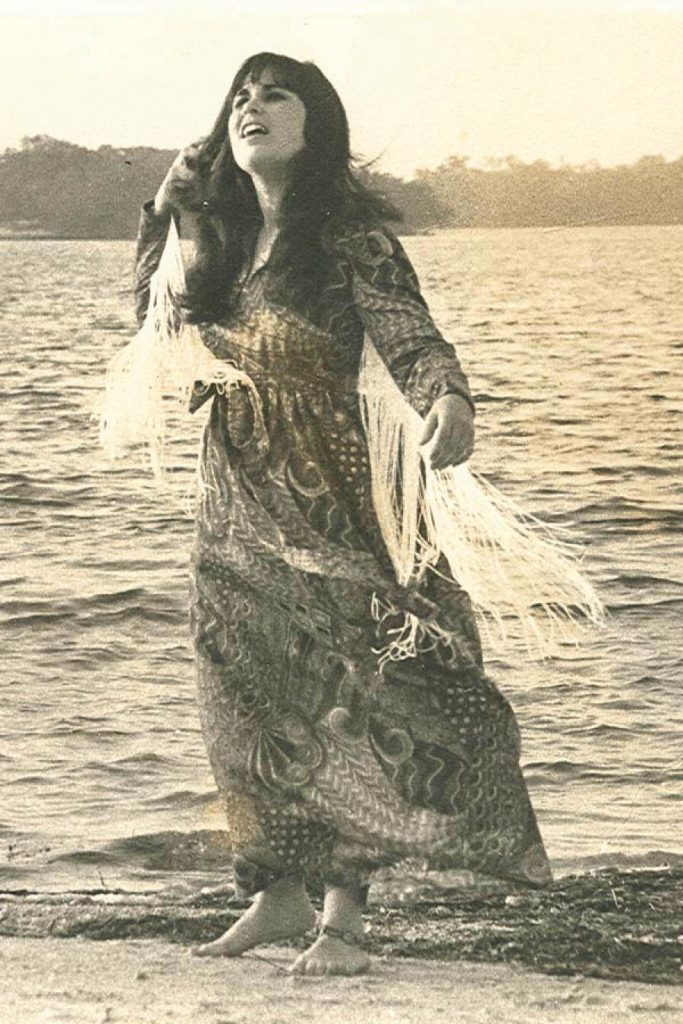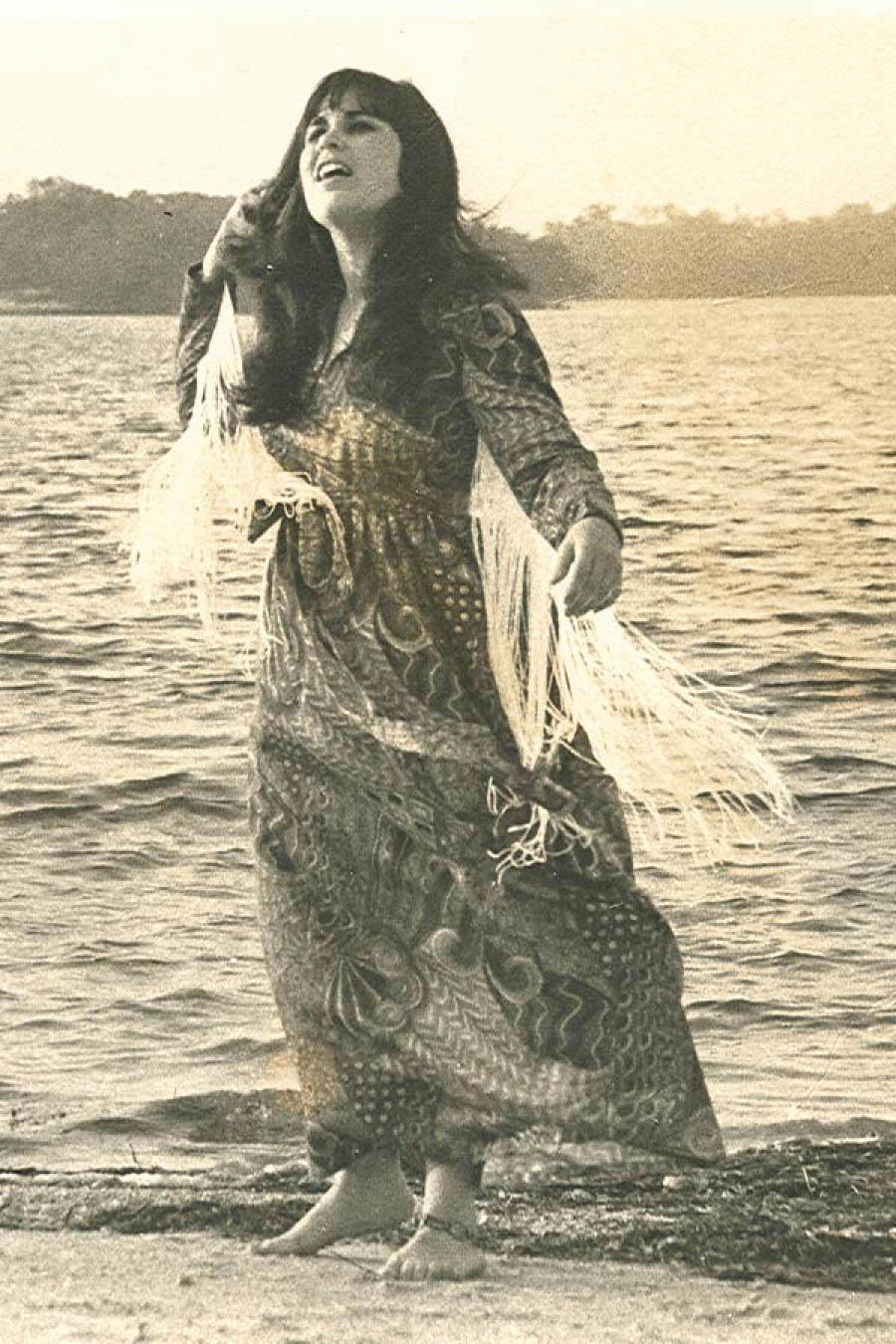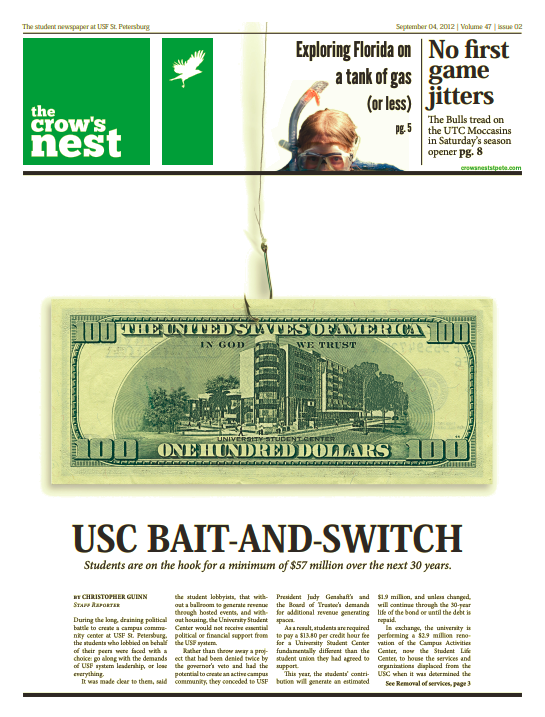
By James Bennett III
Just as The Crow’s Nest started with a chicken, its founder’s story began on a chicken farm.
Joan “Sudsy” Tschiderer grew up in DeLand with her grandfather, parents and four brothers. Her small town childhood provided an abundance of “little amusements,” like chasing her best friends Dalmation around a movie theater during a screening of “101 Dalmations” and learning to respect everyone as human beings while segregation and prejudice plagued larger cities.
“It was such a different world, and I feel so grateful that I was able to grow up in a rural environment,” Tschiderer said. “We lived literally in the woods. We had clay dirt roads and had all kinds of animals.”
She and her family moved to Weedon Island after her grandfather died and Hurricane Donna wrecked the farm in 1960.
The property was eventually sold to two Volusia County animal cruelty officers who repurposed the farm into Journey’s End Animal Sanctuary, where animals ranging from chickens and hogs to cats and dogs are able to find refuge after hard lives. Some of the structures that Tschiderer grew up with still remain on the property.
“It’s one of the great joys of my life that my property that I grew up on is still rural, and it’s being used to care for animals,” Tschiderer said. She and her brothers still visit the property and send donations.
A budding journalist
Moving to St. Petersburg wasn’t exactly easy for Tschiderer. But, as luck would have it, a family from rural Pennsylvania lived nearby and had a daughter who was Tschiderer’s age. The two became quick friends.
Things became easier as Tschiderer transitioned to high school. She went to Notre Dame Academy, a Catholic girls’ school that eventually became St. Petersburg Catholic High School, and joined the school’s award-winning journalism program.
She was also given her nickname, “Sudsy,” in high school. Her friend thought she resembled a character of the same name from the television show “My Three Sons.”
Later on, while earning her associate degree, Tschiderer became the editor-in-chief of The Troiad, a student news/feature magazine that was published twice a year at St. Petersburg Junior College. Their offices were right next to the student newspaper.
“I enjoyed a wonderful experience at SPJC. We had some extremely gifted professors who were bona fide scholars,” Tschiderer said in an email. “We student journalists enjoyed ongoing collegiality and friendship.
“Student publications are incubators, and they also spur your creative juices and make you better and accountable for what you do as well, she said. “I think schools that don’t have student publications are really doing wrong by their students. So I’m very grateful I had those opportunities.”
Tschiderer wasn’t introduced to journalism in school, though. She wrote and illustrated her own family newspaper as a child, and her father was adamant that she read the news — not just watch it on TV — every day.
“We got three newspapers: the Orlando Sentinel, the Daytona Beach Journal and the DeLand Sun, and we read our papers,” Tschiderer said.
A young campus
After earning her associate degree, Tschiderer planned to pursue a bachelor’s at the University of Florida and, eventually, become the film critic or page designer for LIFE Magazine. But after she failed to submit her paperwork on time, she discovered USF St. Petersburg by accident.
During a shopping trip, Tschiderer’s friend drove her to the campus, which was housed in military barracks on the harbor at the time, to pick up a schedule.
Tschiderer decided to pick up a schedule, too, and intended to stay for only one quarter before applying to University of Florida’s journalism program. She took two English classes, a psychology class and a world geography class during the winter quarter of 1969.
“It was a wonderful time to be here because it was small and homely, and there was just a wonderful vibe,” Tschiderer said. “People were genuinely fun to be around, and you learned from so many different people even outside of your major.”
The classrooms in the old barracks were small — fitting roughly 30 students — and window air conditioning units were noisy. Since classes during the quarterly schedule could go on for five hours, students could eat in the classrooms.
Harbor life brought an abundance of adventures, too.
From February to June 1965, famed oceanographer Jacques Cousteau docked his ship near campus and allowed students to climb aboard. Tschiderer remembers swimming in the pool with the sailors and getting into French bread fights. She also had lunches consisting of cheese, bread and wine with Madame Cousteau.
When Dutch or British ships docked in the harbor, soccer matches were scheduled against crew members. Tschiderer played right midfield and right backfield for the USF Sand Spurs, St. Petersburg’s first women’s soccer team.
Tschiderer said she came to the campus during its “embryonic stage.” There weren’t many resources available to students, and many people learned how to develop the school as they progressed.
However, the university’s infancy also meant students and faculty had more creative freedom while Tampa “wasn’t breathing over our shoulders.”
Tschiderer said Dr. Les Tuttle, USF St. Petersburg’s founding dean, allowed students to bloom at the young university and wanted them to play a hand in its evolution.
To promote communication between staff and students while they figured out how the campus should develop, Tschiderer started the Bay Campus Bulletin without an office and having to borrow equipment from campus leadership.
“Having done this before, I was kind of the natural (person) that it should fall to. And I was volunteered to be the communicator for gathering students together,” she said. She added that, despite its humble appearance, the bulletin grew rapidly.
It took her countless hours to gather information, produce, edit and print the paper, often by herself in the paper’s formative years. But as time went on, more staff joined, and the Bay Campus Bulletin grew to become The Crow’s Nest.
“It was a useful way to communicate the ways and means of an evolving, thriving little campus. We were The Little Campus That Could,” Tschiderer added in an email. “Producing the paper was a delight. I felt productive, despite the humble product.
“I was able to draft some friends to write as CN grew. I was the (inept) typist for decades – and became wildly adept at using white-out. No computers till years later.”
College life
After earning her bachelor’s degree, Tschiderer was offered a position with student affairs. She took the job in September 1971 and, as a university employee, was able to take courses for her master’s degree for free.
Tschiderer’s final retirement date, after 40 years, was Halloween 2011.
She is the longest serving full-time staff member at USF St. Petersburg and still works part-time, putting in about 10 hours a week, as a university historian in the Snell House. She also helps coordinate special events, like the Tampa Bay Times Festival of Reading and the St. Petersburg Science Festival, and works with a few of the university’s constituent groups of retired faculty and staff.
Dr. Ray Arsenault once dubbed her the “Campus Earth Mother,” a title she is honoured to carry.
Tschiderer still audits classes, too. This semester, she’s taking a class on Arabic history, culture and film.
“I know it sounds kind of corny, but when you stop learning, you die. And there’s so many people that you can learn from,” Tschiderer said.
Her plans for the future are simple enough.
“Smile, stay healthy, and enjoy the ride! Smell the roses.”


